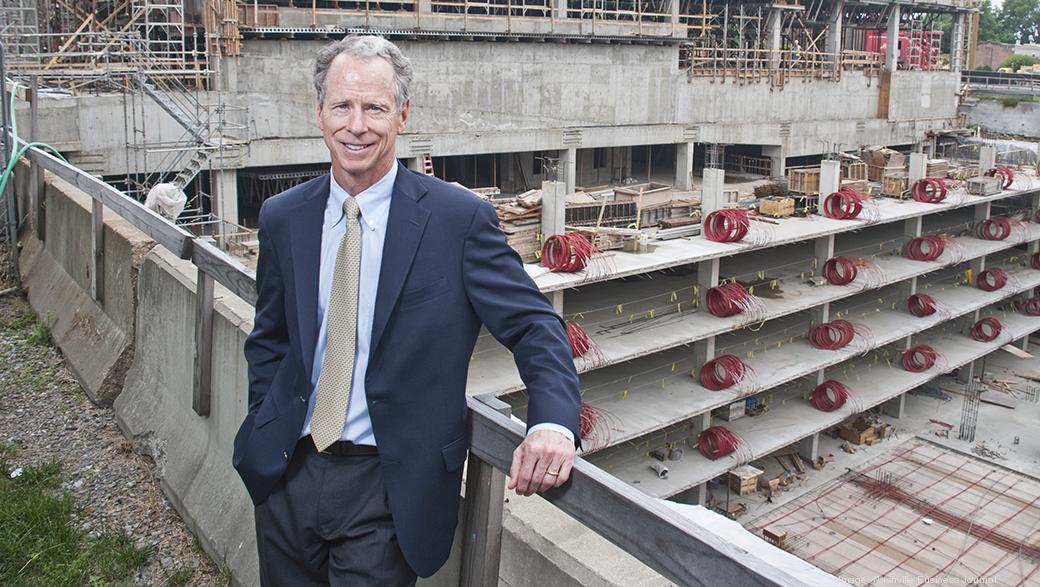Nashville Business Journal Article
You are the third generation running this business. You and your family have influenced so much of Nashville’s development. Given that perspective, what is the one trait that defines Nashville? It would be assimilating new people into town. Remarkably so.
There’s an awful lot of that going on right now. It’s hard, when you are used to steady growth, to understand what is really happening to our city. We’re kind of in those adolescent, testosterone years where we’re really growing so fast, it can be hard to know who we are. We knew, clearly, what we were doing. City leaders, speculators, entrepreneurs had a clear vision, and that goes back a couple of decades to Mayor Bredesen. What we’re witnessing now is an inflection point. You go back 25 years, Nashville was a lot bigger than Austin. Nashville was growing at maybe 2 percent a year, and all of a sudden, Austin’s at 8 percent — it’s easy to see that they’d eclipse us. What we think is fast growth for us now, that may still be only half the speed of Austin.
Did you always want to go into the family business? You’re very much influenced by your parents; you can’t help but be. I love it. Every day is new and different. We get to see what we finish; it’s a physical being. It’s like a complex puzzle.
What would you consider your first job? When I was 15. I was a solo glider pilot — you know, fiberglass racing sailplanes. I worked at the glider airport in Eagleville, all day during the summer in exchange for free flying time. The glider, of course, has no engine. It lands on one wheel and rolls down the runway. Someone has to push it down the runway and hook up the tow line. Voom! Off they go. After these 200-mile flights, the cool guys will buzz the airfield at 140 mph, 10 feet above the runway. Then they’ll pull up and gain 400 to 500 feet altitude, enough to fly around in a pattern. At 15, you say, “Sign me up!” I was 26 when I owned my first plane. Then you get married, have kids. The wife’s going, “OK, you are leaving me [at] home to do what?” It was an easy choice.
If it’s a business meal, where am I finding you? Pinewood Social for lunch. Kayne Prime for dinner.
I know you rowed in college. Now you’re a cyclist. I rowed in the seven-seat, starboard side, for four years in the first boat at Princeton. It was crazy. It taught you a lot about lactic acid pain. On a bike, stress melts away. We just had a great weekend riding in North Carolina: 200 miles and 17,000 feet of climbing. I just turned 58. I’m still in my age-denial mode. Hey, I can’t be old if I’m putting in four or five hours on my bike, 75 miles at a time.
Let’s assume you do that and then collapse on the couch. What are you watching on TV? I love the History Channel, and of course, “Game of Thrones.” I read the first book. It’s well-written and it’s original. I’m drawn to that.
You’re a voracious reader. When I latch onto an author, I usually read every work he or she has written. I just finished Malcolm Gladwell’s “David and Goliath.” There is Dan Jones’ “The Plantagenets: The Warrior Kings and Queens Who Made England.” “A Praying Life,” by Paul Miller. “Paper Angels,” by Jimmy Wayne. I could go on and on talking about history. When you read history, you begin to understand humanity. What is so crystal clear is that the way Man was 5,000 years ago to today, we’re all the same, we’re just not standing in the shield wall against the Norsemen. Our humanity is unchanged in 2,000 years. We’re so much alike in so many ways.
That book “Paper Angels” is about the Salvation Army, an organization you volunteer with. You’ve also, for a decade, served an orphanage in Bolivia. Why? I go there twice a year, to the Amistad Mission in Cochabamba. It’s a home for 80 abandoned and abused children, mainly of the indigenous Indian population there. What draws me there is the fact that it is similar to the starfish parable. They’re sort of your children. When you go there, you are stripped away of cell phones, you don’t know the language, you don’t fully understand the culture, and you’re receiving love and hugs. It’s hard not to feel very close to God. Why wouldn’t you want to experience that again?

